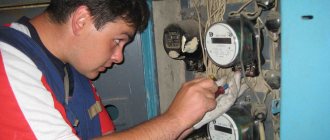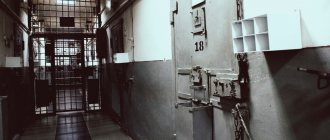I spent the first half of my nine-year term where the “first movers” were intimidated by the Discipline and Order Section (SDO). Unprecedented tales were told about her and they referred to her when it was necessary to calm down the men from the camp mass: they say, do not undermine the “back door” and do not provoke “garbage”, otherwise you will march into the dining room in formation and singing.
I spent the last few years of my journey in a close circle of SDP activists. It was not the best time, but it was the most eventful.
The discipline and order section in the “red” camp is not just a dozen or two intimidated prisoners who openly monitor other convicts and report everything to the operatives’ offices.
The SDP is the nervous system of the “red” camp. Officially, it can be called anything except its own name.
Back in 2010, the head of the Federal Penitentiary Service banned discipline and order sections in prisons and camps: there was too much lawlessness. But the SDP, of course, did not disappear, they simply changed their official name. For example, the VPD is a volunteer fire brigade.
There are also convict firefighters. They respond to training alarms and run around for the amusement of the camp in a fireman's uniform, wearing a helmet and carrying a fire extinguisher. There are at most a dozen such activists in the camp, but according to documents there could be a hundred of them. It all depends on the needs of the operatives or the camp security department, or even the “owner” himself - the head of the colony. Fake firefighters are the SDP.
The SDP curators have strings attached to every object and subject of the camp; they have everything under control. The “esdepuriki” should be the first to know about any significant event, and especially an emergency in the camp - this is their main duty. Find out and convey information to a higher-ranking activist. As if through the nervous system, the signal in an instant reaches the main nerve nodes of the SDP - the “detachment cops”, the day/night shift workers of the SDP, and then to the head of the “esdepuriks”.
The main one in the SDP is the “colony cop”. Every morning he reports to his supervisor at headquarters, be it the head of the colony or his deputy. He goes around the zone together with the administration, writes down the orders of the “big stars” and carries them out. He decides the fate of the majority of prisoners in the camp, at least he is able to significantly influence the administration’s decision regarding any of the prisoners. He sets up the entire tracking and denunciation system in the camp, down to the smallest detail.
Hell of administration
© flickr.com
The bulk of the prisoners in the “red” camp are undoubtedly suffering. Convicts in security detachments are not busy with anything and gradually become dull in front of the TV or radio with a daily program about internal regulations (IVR). In the production - work - detachments, prisoners, on the contrary, from morning to evening plow for the enterprising head of the colony in the industrial zone. However, compared to a simple activist from the SDP detachment, any other prisoner lives luxuriously.
When in a “red” camp an ordinary prisoner without connections and money ends up in the SDP system, he has little choice: to resign himself and do whatever he is told, or to suffer from bullying, and then still resign himself and do whatever he is told.
After two weeks of quarantine hell, the prisoners are distributed by the administration into units and positions. Those who, for one reason or another, end up in the SDP are unlucky. At a minimum, they will have to sleep much less than they should, and, on the contrary, get much more damage from the liver.
The first three days the neophyte teaches the camp administration. This means that in the free time between getting up and going out, the prisoner sits and, like a poem in school, teaches the names, titles and positions of all those representatives of the administration who work in the camp. It’s easy to confuse dozens of names and titles; not all prisoners know Russian well, but in the tight atmosphere of fear so skillfully created by sadistic activists, only a few fail the administration exam. Those who never learned to recite poetry at school were later severely beaten in the SDP camp.
Theoretical cramming is replaced by practice in the camp. If you look at the camp from a bird’s eye view, you can see “esdepuriks” at all intersections and key points. Each of them has a notebook in their hands and a pencil behind their ear. In the camp, SDP activists monitor everything and everyone: they record the movements of administration employees, keep time and write about the routes of those prisoners who are interested in the operas or the top of the SDP, eavesdrop on conversations and even try to recruit ordinary prisoners into their agents.
"Cop colony." 2021, penal colony IK-40, Kemerovo.
The “Esdepushnik” is obliged to know by sight all the employees of the administration, and from afar to recognize by the gait of any employee of the colony. Therefore, newcomers stand, for example, on the corner of the headquarters and spend hours looking at the “gateway” - the entrance doors to the camp. As soon as they notice an employee appearing, they immediately signal with gestures to the next “esderupik” point about thirty meters away and write down the time and code of the employee on a piece of paper. To ensure that the recordings are accurate and the communication is instantaneous and at the same time not readable by a casual observer, all signals and notes are encrypted. Each administration employee was assigned a code in the form of a number and a gesture by the top of the SDP. As soon as some deputy chief goes out on a round to the camp, news flies ahead of him: so-and-so has left headquarters and is going to the zone. The central nodes of the camp’s nervous system come into combat readiness: they hide prohibited items, spruce up the units and facilities, and prepare reports.
With the help of prisoners, the administration also monitors its own employees. At any round and during detachment planned searches, an “esdepurik” is always present and writes what was seized and from whom, what time the search was completed and how many packages with seized things were delivered to the duty room. In this way, the “owner” of the camp eliminates the possibility of corrupt connections between prisoners and employees.
The SDP also carefully monitors the prisoners, although not the entire mass, but only those who are on the pencil. Professional accountants and legally literate prisoners, impudent people and potential rebels - all those prisoners who are of some interest to the operatives are taken under special control, “on a pencil”. “Esdepuriki” is what they call them – “pencils”. Their conversations are written, their movements around the camp are written, their time to go to the toilet is written. No video cameras or smart surveillance systems are needed: prisoners monitor and report just as well, but much cheaper.
Prison and life behind bars
The real owners of the zone are not people in uniform, but “goats”! Everyone knows the word "goat". Not in the sense of a cloven-hoofed and horned animal with a beard and a vile smell, but as an expletive. Many unconvicted people have probably heard that this curse word behind bars is a terrible insult and means an informer who rats out his own brother prisoners. The origin of this term is as follows. Previously, slaughterhouses kept a trained goat that would lead unsuspecting animals to slaughter, while remaining unharmed.
Analysis by breed
In fact, the concept of “goat” in captivity is very complex and ambiguous. Let's start with the fact that in correctional colonies there are official “goats” activists who are not encrypted, but on the contrary, even wear distinctive signs on their clothes. There are still informers. They are also called “mother hens” and decoys. Everything is clear with them. They live like decent people, but they betray their neighbors.
With an asset, everything is much more complicated. There are entire colonies in which convicts are immediately turned into activists, forcing them to do so with threats of punishment and beatings. Completely intimidated prisoners wrote applications to join the section. After such a statement, their path to criminal authority was closed forever. But if a convict from this colony ended up in another, after being re-convicted, then he could hide from the lads the fact that he had once been an activist. It’s another matter if the prisoner held a position and openly served the cops. There's no way to hide this.
What does a convicted person get from a position? We will discuss below what pros and cons this brings him. Let's start with the orderly squad. There are two of them - the eldest and the youngest. The eldest is also called the caretaker or foreman. His responsibilities include maintaining order in the detachment, making repairs there, and maintaining cleanliness. The caretaker himself does not clean. This is done by the junior orderly (if there is a thieves' move in the zone). But if hard-working “men” live in a detachment in the “black” zone, or if the zone is “red,” then they are removed one by one. Which is absolutely legal according to internal regulations.
But the thieves get out of the way, even while on duty. Otherwise, you will immediately lose your status. Also, the criminal should not go to weekly chores to clean the territory. Blatota and decent prisoners resolve the issue differently. Somewhere, all the cleaning and work is done by the “lowered ones.” But there are colonies where thieves and “supervisors” are not against everyone (except them, of course) being put on the duty list. When it’s the person’s turn to take the mop or broom, he must pay (a pack of cigarettes or a pot of tea) to the worker who will do the work for him. Otherwise, everything will be covered with dirt.
In addition to cleaning, the responsibilities of the caretaker include everything that concerns the life of the barracks. Plus, the senior orderly has direct contact with employees. He has a special day for his report in the operational unit. The caretaker is the right hand of the squad leader. Here everything depends on the person. If a strong personality becomes the caretaker, then he can behave very independently, forcing even thieves in the “black” zone to reckon with him. Well, on the “red” the supply manager generally single-handedly manages the life of the detachment, and everyone is afraid of him.
He distributes sleeping places, can help avoid punishment for a violation or remove a previously imposed penalty, which opens the way for parole. Naturally, convicts bring gifts from the parcels to the caretaker, and give money for help with parole. The caretaker usually has a separate room, in good repair, with a TV and tape recorder. The junior orderly lives in the baggage room, where prisoners store their bags. Becoming an orderly is the surest path to early release. Therefore, among the supply managers there are many former thieves, “supervisors” and even thieves. But maintaining this position is not so easy. You have to manage to be good to both the cops and the prisoners. Otherwise, they will either remove it or cripple it. Openly touching a “goat” is dangerous - they can open a criminal case against you.
Bath and laundries “looked”
In addition to the detachment's orderlies, there are other orderlies - at headquarters, for example. Especially trusted convicts work there. They see which prisoners often go to the opera houses and the authorities. They are trusted to clean offices in the absence of cops. Usually these orderlies live at headquarters. This is done so that they will not be run into in the barracks and extorted for information.
There are orderlies in the bathhouse. They are also responsible for the laundry. This position also generates income. You can hand over your laundry to the laundress along with the entire squad. But it’s not pleasant when your sheets and other linen are washed along with the linen of one and a half hundred convicts. For a pack of good cigarettes, your clothes will be washed separately. Also, for a fee, they will let you wash on a day other than yours. Smoke is the main currency in the zone. It can be exchanged for money, food, good clothes. Cigarette prices are higher than outside.
There are orderlies in the punishment cell, strict conditions of detention, and cell-type premises. It happens that such caretakers constantly live in such a Zonov prison; they go out under the supervision of an employee to get food from the canteen. Or food for them is brought from the catering unit.
The orderly of the punishment cell is in the room all the time. He cleans the hallway and distributes food. Even a criminal can’t clean his cell. If the caretaker of the punishment cell goes out into the zone and sleeps in the barracks, he has a hard time. The thieves ask him to hand over the forbidden things to the cells. If the “supervisors” do not do this, it means that the punishment cells are “frozen” and the “supervisors” are useless. But if the caretaker of the punishment cell is caught with prohibited smoke, tea, free food or a note, he will be beaten by the guards and removed from his post. The caretaker cannot completely refuse to wear the ban. The thieves run into him in the barracks. Yes, and the prisoners in the cells can press. The authority will shout that the caretaker is a “rooster”; no one will take food from him. Then they will also be removed from office. So this orderly is spinning around. If he has a head, he cannot live without gifts from convicts.
The colony club also has orderlies. The younger ones serve the older ones and maintain cleanliness. The caretaker carries out leadership functions and is responsible for cultural life. The political officer is responsible for the club from the authorities. He also tries to choose a creative caretaker.
Bread places
But the most trump and at the same time troublesome thing is to be a canteen manager. Products for cooking are stolen from convicts while they are still free. The deputy commander needs to feed and share with his superiors. The canteen manager needs to recruit cooks so that they can prepare an edible brew from a poor set of ingredients.
Okay, in the “red” zone - the prisoners there are intimidated. And in the colonies, where there is a normal “supervisor” at the table, they can even cook you in a cauldron for poor nutrition.
Well, these are extremes, of course. The overseers or the “goats” (depending on which of them rules) receive food at the level of good factory canteens, or even restaurants. Dry food from the table and the cooks are sold for cash and smokes and tea, or the food is completely rotten.
There are colonies where the head of the table, together with the “supervisors,” sold everything they could and exchanged the money for heroin. Ordinary prisoners suffered from dystrophy. But if anyone risked complaining, the thieves beat such a brave man, declaring him an enemy of the general movement. Here everything depends on the head of the colony. If he controls the food department, then the prisoners are fed normally. And vice versa.
There are orderlies in the meeting room and delivery room, in the institution's storeroom. In a word, where, during the half-starved existence of convicts, it concerns food, the position is always a grain one. The orderly of the meeting room sometimes lives directly at the meeting, or comes from the zone. He can bring alcohol into the visiting rooms, he gets all the products that are prohibited from being brought into the zone. He can deliver these prohibitions to the detachment for a fee.
In some correctional facilities there is a post with a gate between the residential and industrial areas. There are often orderlies on duty there too, completely replacing employees and ensuring that convicts who do not work in teams do not enter the industrial area. Such supply managers also take bribes. If someone needs to go to the industrial area to wash themselves or visit a fellow countryman, pay. A hard worker wants to carry a food parcel, which is prohibited - pay. In short, there is enough for a satisfying existence. The main thing is to get along with your superiors, otherwise they will quickly grab you. If you let a parasite pass, the inspector will write a report. That's all.
Stylist with tag
In addition to orderlies, there are many more positions for convicts. The colony's contractors are also very trusted representatives of the employees. The contractors keep a card index of the special contingent - who arrived in a convoy, who was freed, who went to work and on what shift, how many people are in the detachment during the day and how many at night, which of the prisoners spend the night at the facilities. Without a contractor, employees will not be able to count prisoners at roll call. The contractor can cover those who have escaped for a long time. That’s why the contractors must be convicts who have been thoroughly checked by the police unit.
Each colony has a barber. He only cuts hair for free. If you want to wear your hair, pay. It happens that there is more than one barber in a colony. Famous stylists are among those convicted. They serve the bosses, do hairstyles and perms for their wives and children.
There should be a library in the zones, where convicts also rule. There were librarians who got involved with their superiors and imprisoned a junior assistant for maintaining the card index and issuing books. Asami lived in a separate room. The librarian must also be devoted to the employees; he takes books to the SUS, EPKT, PKT and can pass on the ban to the inmates. Many prisoners love to read. That's why they bribe the librarian in order to get not torn waste paper from the general stack, but a whole interesting book from the librarian's storerooms.
There is also a shoemaker in the colony. In each barracks there are craftsmen who know how to hem or patch boots. But there is only one shoemaker in an official position. He is obliged to repair free of charge only the shoes of convicts. But not everyone wears what they gave out at the clothing warehouse. If you give a shoemaker some goodies, he will repair casual shoes, or sew warm slippers that you can wear in winter and outside.
It happens that next to the shoemaker's workshop there is a seamstress where convicts can patch up their clothes. Only tailors do not mend holes and do not adjust the robe according to height and size.
Another position is privateer. He gives the prisoner mattresses, pillows, blankets, Kapter’s sheets are also often oiled so that he gives a thicker mattress, a blanket that is not torn, and newer sheets. The poor and non-criminals receive what is left.
Commandant in law
There is a commandant in the housing zone. He is in charge of repairs in the colony. Every criminal convict wants to improve the sleeping section. Each caretaker needs to do repairs at his facility. It is not always possible to obtain humanitarian assistance from prisoners in exchange for parole. If you bribe the commandant, he can release huge quantities of leftist material. It's a lucrative position, but you have to be clever.
There is also a commandant at the industrial zone. He is responsible for all workshops, utility rooms, warehouses, for repairs and safety of everything. Often, to the detriment of the industry, the commandant helps with vein repairs. Each work team has a foreman. The foreman is a “goat.” He often does not work, but carries out supervisory functions. He gets all the laurels for completing orders and tasks. He receives payment from cooperators, he sells the hack work of hard workers and materials used in production. There are colonies where, in order to become a foreman, you have to pay the cops a lot of money and pay monthly rent. But the foreman’s income is not weak. For example, in the same souvenir where dozens of convicts make furniture from mahogany, cut chess from bone, and make other luxury items. Plus the foreman has a separate room, shower, sauna, good food, parole.
Brigadiers are assigned to firefighters from among the convicts. These firefighters in some colonies even service a special vehicle. They take care of fire extinguishers and live in a separate room, turning it into a gym. It's not like this everywhere, but it happens.
Electricians have foremen. They make money by selling sockets and wires or by installing hidden wiring in the sleeping section of the thieves, disguising the sockets in the baseboard or in the wall, so that the thieves can boil tea or fry food on the forbidden stove without getting up from their bunks. The tiles are also homemade, they are also sold by electricians. For a fee, they repair televisions and tape recorders for convicts, and install antennas on the units.
But not only those who hold positions with certain responsibilities are considered official “goats”. There are also social activists who are members of sections and head them. “Glavkozlo” is the name given to the chairman of the colony’s collective council. The chairmen of the detachment's collective council are subordinate to him. Sometimes the “goat in chief” has great power. In one zone, such a convict typed out all the orders for his superiors and kept documentation. With his power, he put violators in punishment cells. Knowing what the authorities had decided, the chairman of the JCC took large bribes from the convicts for a positive decision on the issue of submission for parole. Suffice it to mention that when the “kozel in chief” went on vacation, seventy thousand dollars were confiscated from him while on duty. For comparison, then a one-room apartment in St. Petersburg cost fifteen thousand bucks.
They left to return
In captivity, there are a lot of sections for physical education, cultural mass, and sanitary. Until recently there was a section of discipline and order. But it was abolished, although this is only on paper. The Esdepeshnikov were renamed physical culturists, and they still monitor the behavior of convicts.
The duties of members of the SDP include making rounds of the sleeping sections. Even in “black” zones, such “goats” record violators, such as those who sleep after getting up or smoke in the wrong place. Naturally, only those are recorded. who won’t beat their head off later, not caring about the subsequent punishment. But in the colonies, most convicts are intimidated. SDP submits lists of violators to superiors. The authorities issue penalties to violators, which closes the path to parole.
Often burned violators bribe the Social Democratic Party not to be recorded. SDP is on duty at the canteen and prohibits food from being taken out. The thieves are too lazy to go to the catering unit, and the “sniffs” bring them food.
Esdepeshniks are on duty at the food store. There's an eternal line there. Normal products run out quickly. If you pay SDP, they will let you skip the line and you can shop. The SDP is on duty at the gates of local stations and ensures that convicts do not go to the parade ground or other local stations unnecessarily. The SDP towers installed in the housing zone have a direct telephone line to the duty station. An activist from above monitors the territory of the colony, and if he sees a violation of the regime, he calls the cops.
The Social Democratic Party does almost all the work for the employees. Somewhere things have reached the point where they are forcing people to confess at the stage of confession, forcing them to write about unsolved crimes. Or they break negative authorities by “putting them down” and beating them. The employees do this because, according to the rules, the prisoner cannot write a complaint against the prisoner. The guards themselves seem to be on the sidelines and do not risk running into a showdown with the prosecutor’s office and human rights activists. Activists are causing all the chaos. It is not without reason that, despite the direct prohibition of the SDP by the Ministry of Justice, they are not going to change anything on the ground. “Goats” bring too much benefit without forgetting themselves.
In relation to the official “goats”, the prisoners still had Soviet concepts - to despise all speculators, bosses who sell their skills or are close to the authorities. But every year there are more and more “goats” in captivity.
Based on materials from the newspaper “Behind Bars” (No. 3, 2010)
"Pencils" on a pencil
© flickr.com
They can even become “pencils” for belonging to a certain nationality: Tuvans or Buryats are mostly inclined to disobey the camp administration, and therefore they are taken under special control by operatives just because they were born different from everyone else. That is why, after studying the administration employees, “esdepuriki” are obliged to memorize all the “pencils” in order to recognize this or that professional accountant even from behind and make an appropriate entry about him in a notebook.
There can be up to a hundred activists in the SDP camp, and each of them has dozens of additional responsibilities to the PVR, each of them is loaded with something. Some monitor the administration, others specialize in “pencils,” while others are required to monitor “cohorts,” that is, a meeting of any prisoners of more than three people. Separate teams of "esdepuriks" are occupied by the industrial zone, the canteen, the headquarters, the store, the bathhouse - each has its own objects of observation and its own responsibilities. A prisoner went for a smoke break - record, threw a piece of paper past the trash can - record, talked while eating - record.
After lights out, when the entire camp freezes in an anxious sleep, the night shift gets down to business in the SDP detachment. Dozens of clerks spend hours deciphering records of the day’s events and movements, compiling reports for the colony’s “cop,” the squad’s curators, and camp operatives.
SDP monitors by day, writes by night. And every morning the head of the SDP goes to report to headquarters, where he tells his supervisor - usually the deputy head of the colony - about the events and incidents in the colony over the past day.
How is a prison different from a colony?
In colloquial Russian speech, the word "prison" is often used to refer to any institution in which convicted persons serve a sentence of imprisonment. However, according to the Criminal Executive Code (EC) of the Russian Federation, a prison is a separate type of correctional institution.
Article on the topic
When going to a pre-trial detention center is salvation. How HIV infection is treated in Moscow prisons Those who have been sentenced to imprisonment for a term of over five years for committing especially serious crimes, as well as for certain crimes such as terrorism, hostage-taking, organizing an illegal armed group, hijacking are placed in prisons. plane, train or watercraft, seizure of power. Prisons also house particularly dangerous repeat offenders and those who were transferred from correctional colonies for malicious violation of the order of serving their sentences.
Prisoners are kept in locked general cells and, in special cases, in solitary confinement. As a rule, a prison is a separate building or a complex of buildings, while a colony occupies a large area with industrial premises and a residential area; on the territory of the colony there may be a store, a club, a library, a school and even a football field.
By what criteria are prisoners selected for the SDP?
© pixabay.com
By order of the operatives, the SDP can automatically receive “youngsters” upon arrival - young prisoners who, upon reaching adulthood, are transferred from institutions for juvenile delinquents to general regime camps. As a rule, the “young children” grow up to be young rebels who dream of shaking the “red” regime, so even at the reception in the “red” camps, the “thieves’ dust” is actively knocked off with batons from the youngsters and assigned to the SDP for re-education.
If a criminal prisoner arrives at the camp, whose personal file indicates a connection with the criminal world, he can also be kept in a punishment cell - “under the roof”, and after receiving the necessary statements on camera, he can be sent to live in the SDP detachment. Even if the criminal does not work, but is only among the “esdepuriks,” his biography will undoubtedly be soiled.
But in general, the population of the SDP are ordinary, frightened prisoners. They are afraid of everything. An unknown headquarters, where evil employees send prisoners in batches “to the harem.” A gloomy curator from the operations department whose offers cannot be refused. The head of the detachment, constantly demanding something. A dozen SDP activists humiliating ordinary “Esdepushniks” around the clock. The intimidated prisoners are not only not ready to defend their legal rights of detention, they are afraid to even look the employees and main activists in the eyes.
Their fear is understandable. Some of the prisoners have been on the hook since quarantine, where they wrote “candid” confessions about their love for anal and oral sex and their voluntary desire to “go to a harem.” Those who “confessed” were given female names, and the SDP detachment activists addressed them exclusively in the feminine gender.
Each squad has so-called “crackers”. Former rapists or pedophiles live among the bulk of prisoners, but do whatever they are told to do. In rare cases, there are victims of rape already in the camp itself. Blackmail and the threat of being exposed and driven into a “harem” are the most effective tools, although not the most common. Most SDP prisoners endure constant bullying and periodic beatings.
But there are also many who go to work for the SDP deliberately. With anticipation, they learn to pawn other prisoners and receive at least small privileges for this. Over time, other “esdepuriks” get the taste and, with manic pleasure, “shoot” prisoners, reporting their violations to “points”.
Someone didn’t fasten a button, someone went out onto the parade ground with their hands in their pockets, someone shot a cigarette from a neighbor - the “Esdepushniks” know that in the future this prisoner will get in the detachment’s quarters or the headquarters office without the right to an excuse. The element of power seduces them. This is how they grow, first in their own eyes, and then in the career of an SDP activist.
Of course, the majority of prisoners despise the “Esdepushniks”, and the most impudent ones do not miss the opportunity to even annoy them somehow. In some places they will throw a derogatory word at your back, and in others they can “pierce” your side with a sharpened electrode. Therefore, the administration carefully protects its “eyes and ears,” and brave prisoners now and then fly up in their offices from batons and shockers.
Mikhail Orsky, author of the bestseller “The Way of the Russian Gangster,” gave a succinct description of the activists.
calling them “scum, traitors,” those who “... will be the first to flee if the Germans come. They will be the first to run to serve the Germans. And in them the camp administration sees its support and calls them “positive convicts who have taken the path of correction.” Yes, they did not take the path of correction; they are opportunists and potential traitors. " The activists themselves are well aware of the attitude of their environment towards them, but at the same time they always find justification for themselves when they agree, in fact, to punitive activities against their own equals.
Don't get there
© Mikhail Metzel/TASS
It is difficult, but possible, to avoid working in the SDP. The rare few who are not ready to put up with the need for denunciations break glass in the detachment and cut their wrists or jump out of the window onto the asphalt. Some even decide to rip their own throat open during a short meeting with their mother, just so that they can return him after the medical unit, even to a punishment cell, but no longer to the SDP.
Most of the spirited prisoners after the medical unit, of course, change their place of stay, sometimes even to a punishment cell until the end of their sentence. But the administration also makes cynical decisions: even at night the prisoner was running around the camp shouting “help, they’re killing him!”, and in the morning, stitched up and treated, he was returned from the medical unit to the same SDP detachment from whose torture he escaped. So, many stop even thinking about the possibility of breaking away from the detachment.
The conveyor belt of the “red” camps releases from its “gateways” two types of stamped products: citizens who agree with everything and professional informants. Some will obediently do everything that people in uniform tell them, others will inform them just as professionally. There is enough work for the SDP on both sides of the fence of the “red” camps.
How to file for divorce while in prison?
Author of the question: Nosov N. Created: 12/01/21
Divorce from a spouse in prison through the registry office
- Make sure that there are grounds for divorce through the authority.
- Prepare a package of documents.
- Contact the authority.
- Pay the state fee.
- Submit the package of documents to the representative of the authority.
- Wait for a divorce from a spouse in prison
.
Answered by: Fedotov O. 12/01/21







